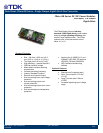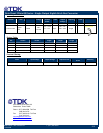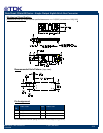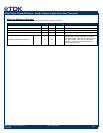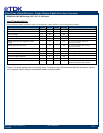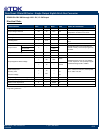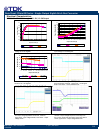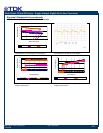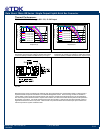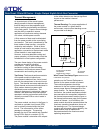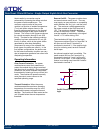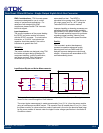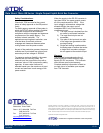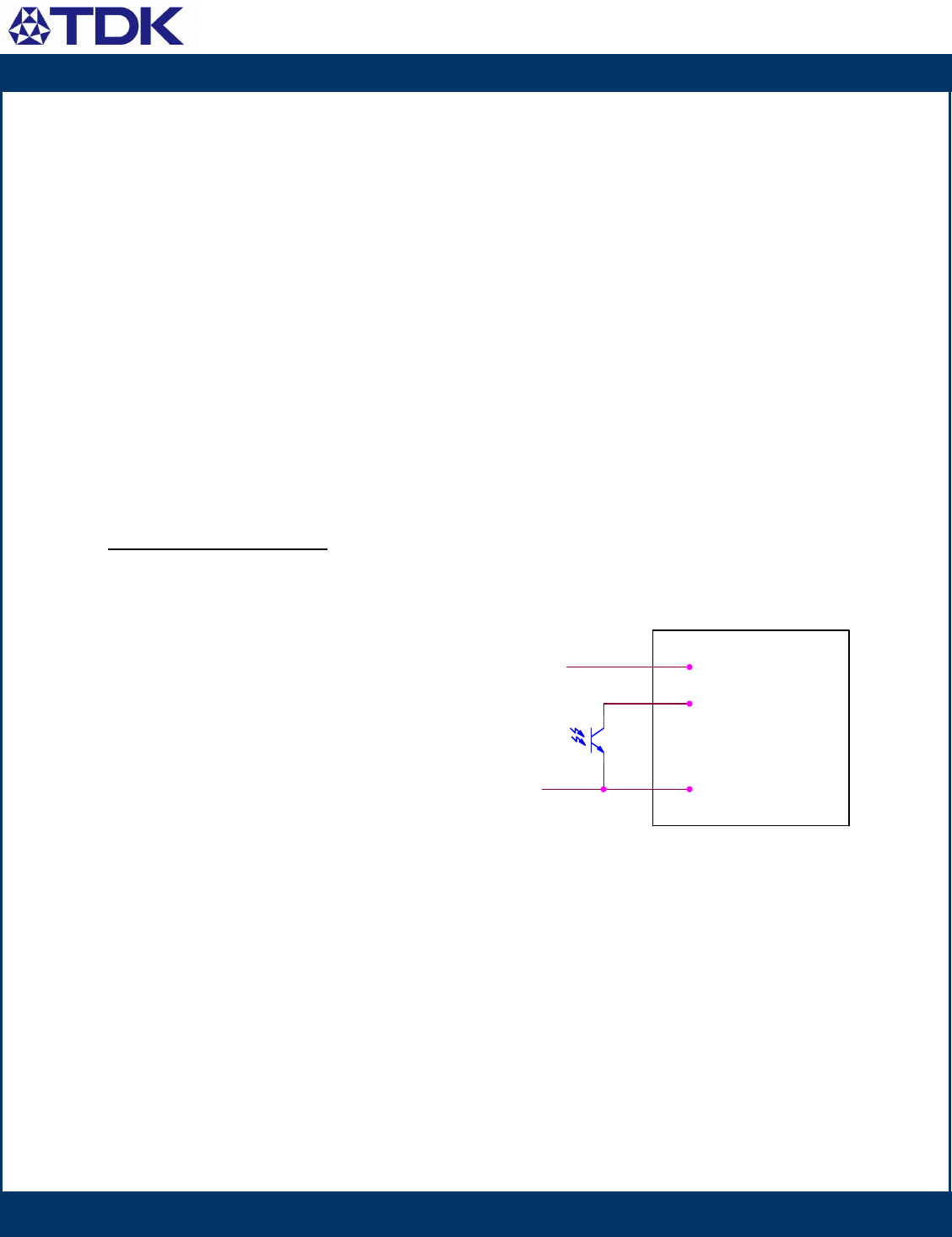
Data Sheet: FReta iEB Series –Single Output Eighth Brick Bus Converter
©2004-2006 TDK Innoveta Inc.
1/24/2008
℡
(877) 498
-
0099
11/13
Heat transfer by convection can be
enhanced by increasing the airflow rate that
the power module experiences. The
maximum output current of the power
module is a function of ambient temperature
(T
AMB
) and airflow rate as shown in the
thermal performance figures on the thermal
performance page for the power module of
interest. The curves in the figures are shown
for natural convection through 2 m/s (400
ft/min). The data for the natural convection
condition has been collected at 0.3 m/s (60
ft/min) of airflow, which is the typical airflow
generated by other heat dissipating
components in many of the systems that
these types of modules are used in. In the
final system configurations, the airflow rate
for the natural convection condition can vary
due to temperature gradients from other heat
dissipating components.
Operating Information:
Over-Current Protection: The power
modules have current limit protection to
protect the module during output overload
and short circuit conditions. During overload
conditions, the power modules may protect
themselves by entering a hiccup current limit
mode. The modules will operate normally
once the output current returns to the
specified operating range
Thermal Protection: When the power
modules exceed the maximum operating
temperature, the modules may turn off to
safeguard the power unit against thermal
damage. The module will auto restart as the
unit is cooled below the over temperature
threshold.
Remote On/Off: - The power modules have
an internal remote on/off circuit. The user
must supply an open-collector or compatible
switch between the Vin(-) pin and the on/off
pin. The maximum voltage generated by
the power module at the on/off terminal is
15V. The maximum allowable leakage
current of the switch is 50uA. The switch
must be capable of maintaining a low signal
Von/off < 1.2V while sinking 1mA.
The standard on/off logic is positive logic.
The power module will turn on if terminal 2 is
left open and will be off if terminal 2 is
connected to terminal 3. If the positive logic
circuit is not being used, terminal 2 should
be left open.
An optional negative logic is available. The
power module will turn on if terminal 2 is
connected to terminal 3, and it will be off if
terminal 2 is left open. If the negative logic
feature is not being used, terminal 2 should
be shorted to terminal 3.
Vin(-)
On/ Off
Vin (+)
On/Off Circuit for positive or negative
logic



